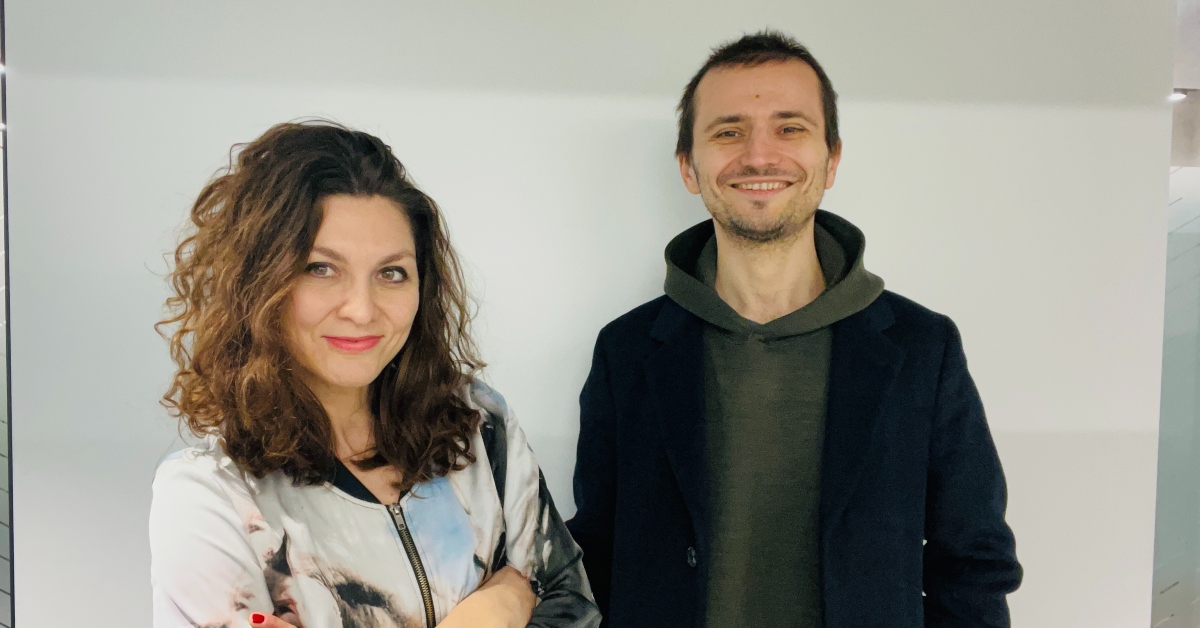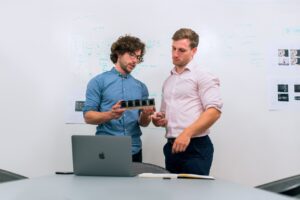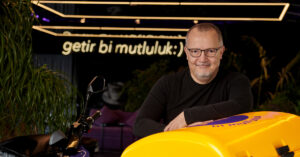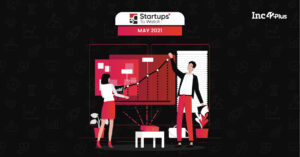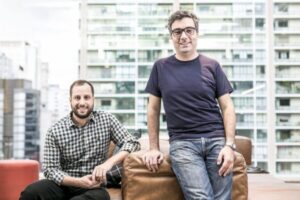Maaind founders Dzera Kaytati and Martin Dinov | Image credit: LUMO Labs
London-based Maaind, a company that claims to be personalising wellbeing through biometrics and neuroadaptive AI, announced on Wednesday that it has raised an undisclosed amount of funding in its Seed round from Eindhoven-based LUMO Labs’ Fund II.
The company raised its pre-Seed funding from Entrepreneur First and angel investors from the UK and the US.
These are the women in science of the Amsterdam startup ecosystem.
With this investment from LUMO Labs, the founders and the rest of the Maaind team will work from their new headquarters at the High Tech Campus in Eindhoven and their existing offices in London.
“Neuro-adaptive AI technology for an optimal state of mind”
Founded in 2019 by Martin Dinov and Dzera Kaytati, Maaind is an AI and neuroscience company. Its mission is to create responsible and personalised AI technology that deeply understands the human mind, to improve mental wellbeing and cognitive performance.
The startup helps businesses to enhance their products and services with real-time well-being intelligence. It combines and connects third-party smart systems and wearables. Maaind’s algorithms measure emotional and stress state from speech analysis, wearables and the environment, and then uses the data to offer suggestions and recommendations for users. All of them are tailored to their psychological or physical state.
For instance, the platform can help improve the mood or energy level of drivers and passengers in cars, providing music recommendations or breathing exercises. This is the core concept behind “neuroadaptive” algorithms and “one of the key innovations in Maaind’s platform, according to the company.
Martin Dinov says, “With our proven, effective tech, we can help millions of people feel better. We also make it easier for other businesses to make their groundbreaking applications and technology available, safer and faster. By integrating with the Maaind platform, these businesses can focus on perfecting their proprietary sensor technology or AI-enabled well-being applications without the additional burden of developing the basic infrastructure for capture, consolidation and computing to make this happen.”
The company is currently working towards embedding neuroadaptive interfaces in areas where people spend the most time – applications include automotive, insurance, smart homes, voice assistants, entertainment, learning and space.
Maaind is active in the UK, Germany and the Netherlands, and has partnerships with several consumer-facing companies.
Capital utilisation
Maaind says that the funds will be used to solidify its partnerships with its clients, attract new partners, and continue research and development of neurotechnology and the AI algorithms behind the Maaind platform.
In a statement, Maaind mentions that its team has expertise in neuroscience, AI architecture, software and neurotechnology engineering, consumer and lifestyle brands and human-centred design. They work with research and industry partners from the fields of biometrics, environmental design, spatial analytics, IoT, and ethics.
LUMO Labs’ founding partner Andy Lürling says, “The possible integrations with Maaind’s unique neuroadaptive AI platform are countless. With this investment, we don’t invest in just one application of neuroadaptive AI. We invest in the fundamental infrastructure to make the ongoing innovation and development of AI accessible for all, specifically AI to improve health and well-being.”
About LUMO Labs
Founded in 2016 by Andy Lurling and Sven Bakkes, LUMO Labs creates opportunities for impact-driven software and smart hardware startups. The current LUMO Fund II is a €20M impact-driven multi-stage capital fund (pre-seed up to and including Series A). It includes a two-year venture builder programme to support its portfolio companies in gaining financial success as well as social traction and impact.
The company backs startups that align with at least one of the three UN Sustainable Development Goals- Sustainable Cities & Communities, Good Health & Well-Being, and Quality Education. It invests in sectors including Artificial Intelligence/Data, Blockchain, Internet of Things, Robotics and Drones, and Virtual Reality/Augmented Reality.
How partnering up with Salesforce helped him succeed!

